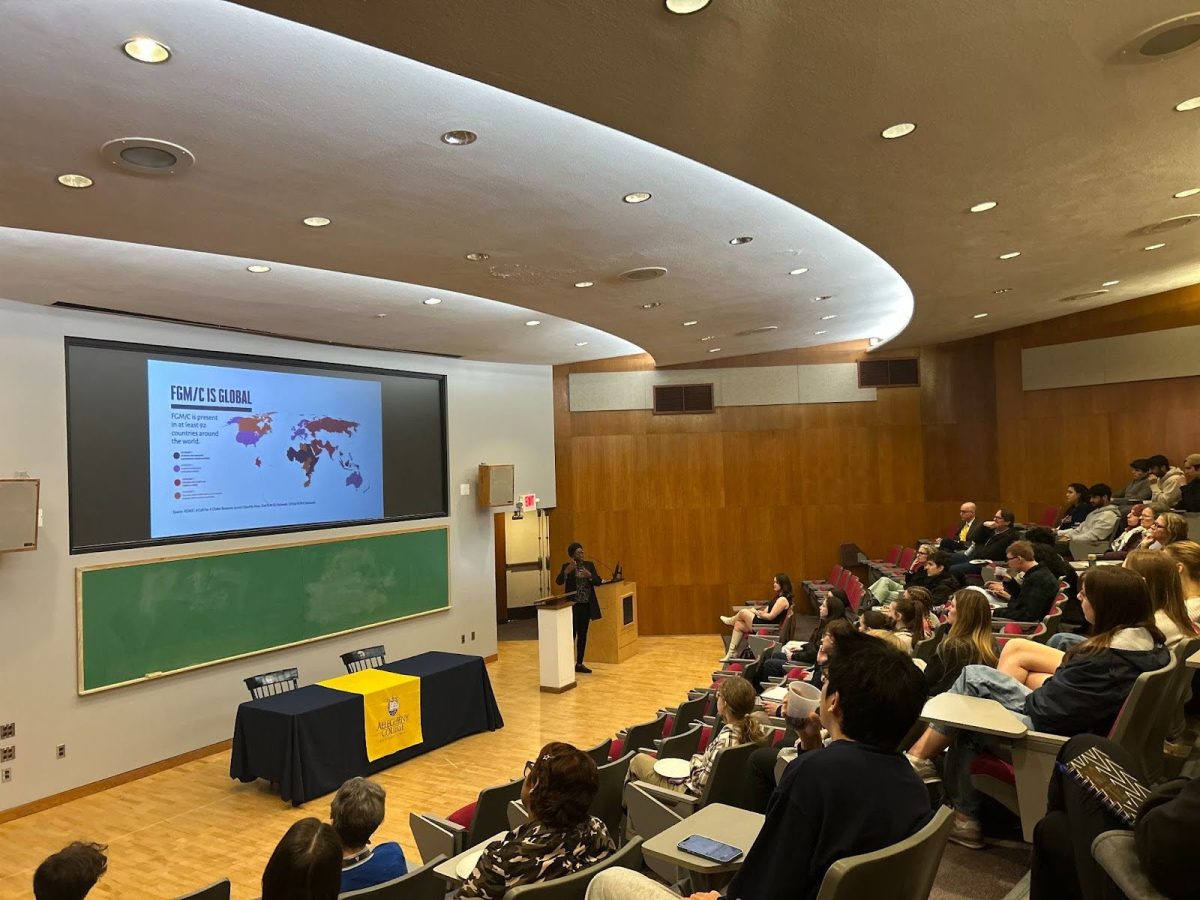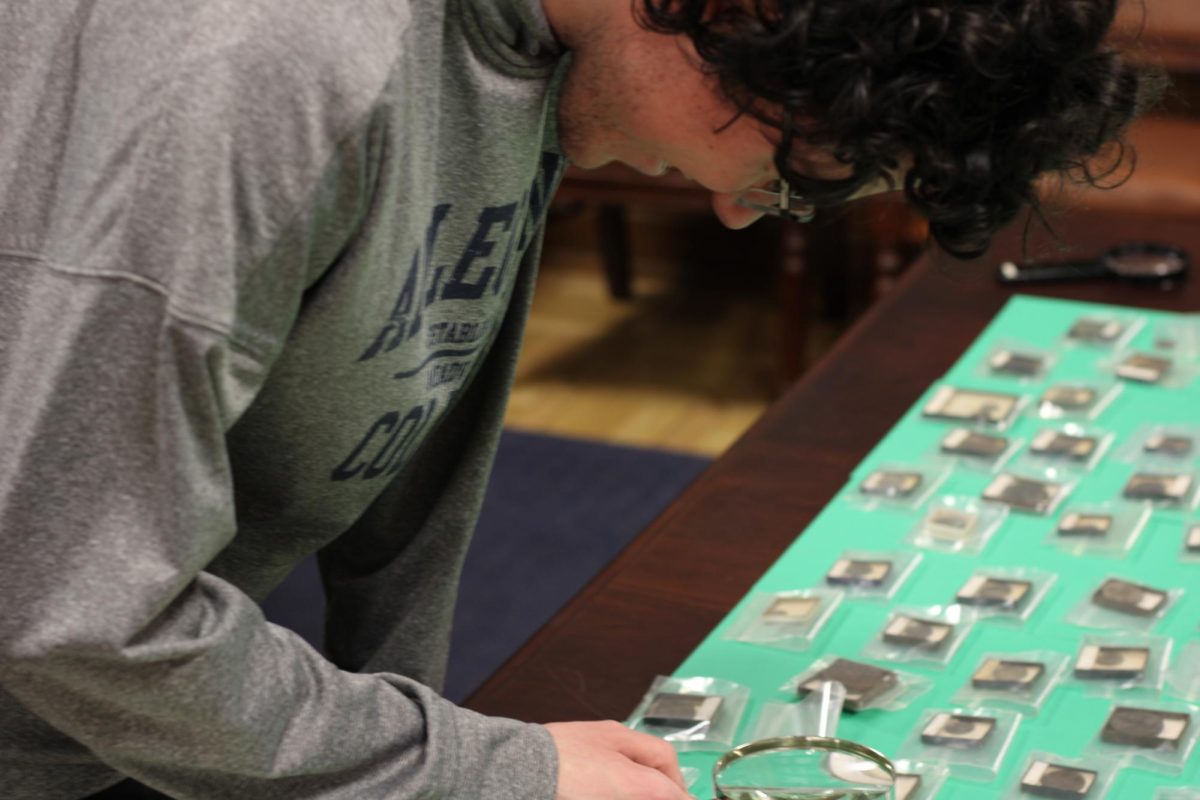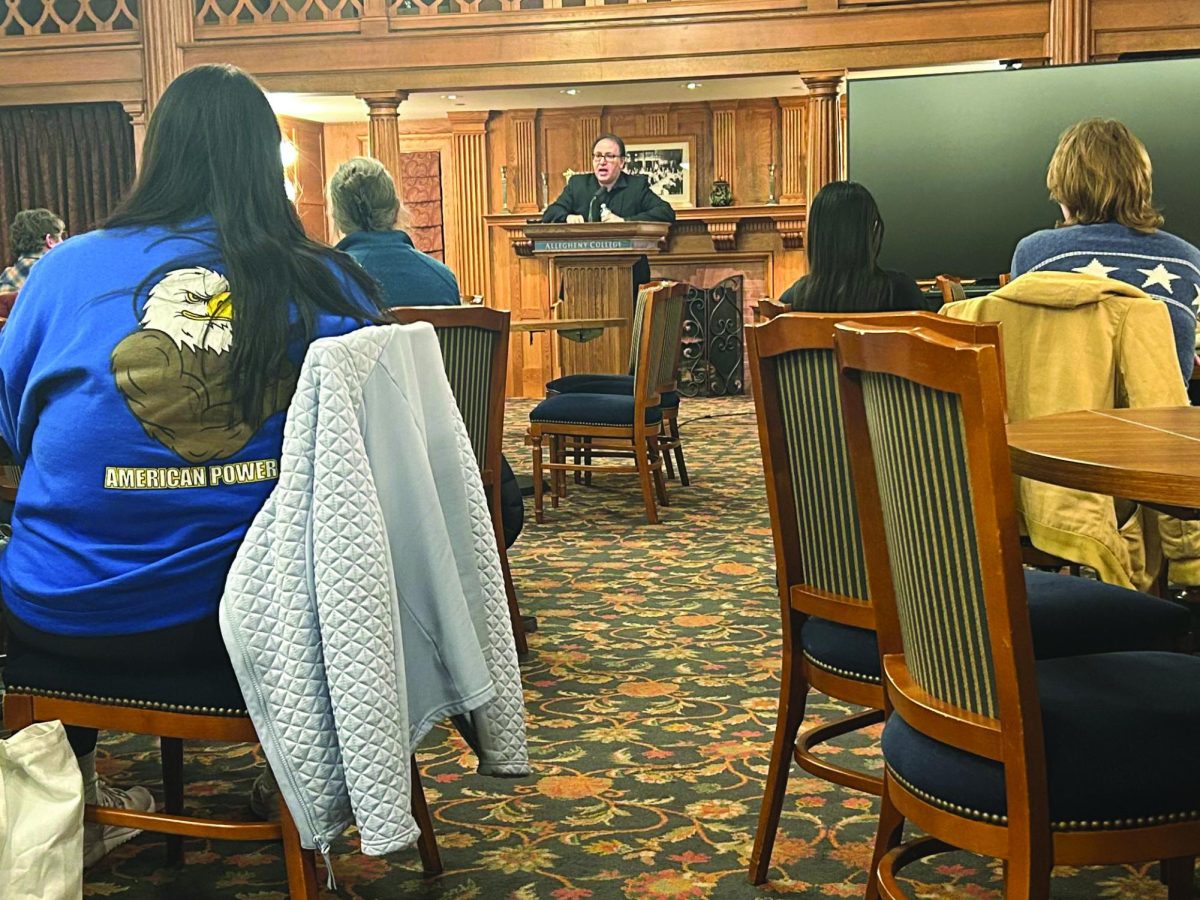
“How I Learned to Drive” continues tonight and Saturday in the Gladys Mullenix Black Theatre at 8 p.m., with a 2:30 p.m. matinee on Sunday.
“The Campus” sits down with Kaitlin Mackenzie, ’11, who plays the lead role as Li’l Bit.
Q: “How I Learned to Drive” addresses challenging topics of pedophilia and incest. What’s the appeal of taking up such serious of a role?
A: I think it’s always fun to take a serious role—fun, and rewarding—and try and do a serious topic justice in that way, and sort of go to a place you wouldn’t normally go in your everyday life. The other thing about this play is that while the subject matter is dealt with in a very sensitive kind of nuanced way, the style of the play is not totally realistic. There’s a lot of humor and theatricality to it that makes this very alienating issue accessible.
Q: How do you prepare for a role like Li’l Bit—a character who has been faced with issues that students our age rarely experience?
A: A lot of what this play is, is Li’l Bit serving as a narrator figure who comes on to tell her story. She sinks into these flashbacks and takes on the persona of her younger self. I tried to access a younger side of myself. I play ages 12 to 30. I go back and access the physicality of how a 12-year-old stands or of how a 16-year-old speaks. That was one way to connect with it. I actually had a chance to meet with an adult survivor of sexual abuse, which gave me some insight into the psychological damage that is done and the coping mechanisms that are used.
Q: What makes Li’l Bit’s character rewarding?
A: I think she’s an extremely strong character. I don’t want to say I’m attracted to survivors, but I keep getting cast as them. [Li’l Bit] is another character who you go into it thinking, “So much awful stuff has happened to this character. She must be broken, damaged”—and certainly she’s damaged, but she’s also got a lot of humor and a lot of strength.
Q: How much time do you put in to the play each day?
A: For me, on average, three hours a night. Sometimes a little less and then during tech week, which we’re in the middle of right now, it’s closer to four or five.
Q: How do you feel on stage?
A: Good? It’s weird. I obviously love to be on stage. It’s one of my favorite places. But I’m generally a reserved person, so it’s hard sometimes not to be self-conscious. And there’s always kind of a duel-consciousness because you’re trying to be in the moment but you’re not, you know, there’s an audience there. So it’s nerve-wracking, so it’s a rush. And it’s really great to escape your own reality, even for a reality that you wouldn’t necessarily want.
Q: Do you have any pre-show rituals?
A: I do have a little necklace with a charm of the Greek comedy and tragedy masks. It was my grandma’s. She was an actress. And so I always wear that. On stage I hook it around my bra strap and tuck it into my bra and I have it. I save it for auditions and performances, so I don’t wear it every day. So I’ll be wearing it tomorrow, but not today.
Q: What’s the hardest thing about performing?
A: I’m really hard on myself. I’m kind of a perfectionist. Not in everything but in the things that I like. So I usually feel like I did a shitty job afterwards, even if I know I didn’t or people tell me I didn’t.
Q: Is intelligence the ideal then? What makes a perfect actor?
A: There’s no such thing. I think intelligence is so, so important. Maybe that’s just me talking as an English major, that you have to be able to understand a text and focus on the words, but on top of that—and this is where I struggle—is being able to integrate your voice and body and free yourself to engage with the text on a physical level. But there’s no perfect way to act.
Q: What role does the theatre play for you in your life as a college student? What are the rewards of being a college actress?
A: Ideally I’d like to pursue a career in theatre, either in performance or the writing aspect of it, or teaching. It’s really, really, really, really important to get practical experience. I think it’s the dumbest thing you could possibly do to be a theatre major at Allegheny and not work on shows. I get bored when I’m not in a show. As stressful as it can be, it’s a release and a chance to do something that I really enjoy because I enjoy it, not because anybody’s making me do it.







